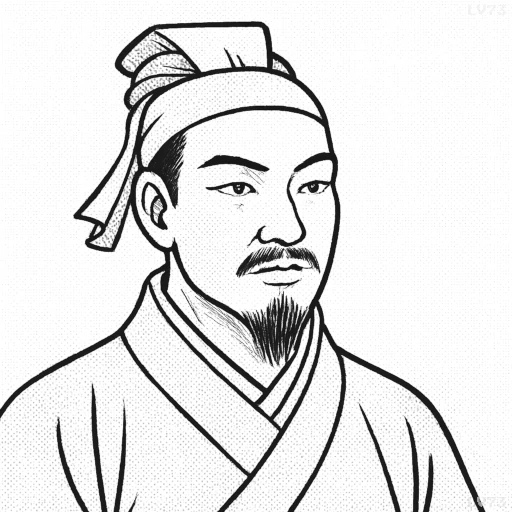“Balk the enemy’s power; force him to reveal himself.”

- 544 BC-496 BC
- Born in China
- Military strategist, military strategist
table of contents
Quote
“Balk the enemy’s power; force him to reveal himself.”
Explanation
In this quote, Sun Tzu advocates for using strategic actions to disrupt or neutralize the enemy’s ability to act freely, while simultaneously forcing them to reveal their intentions or weaknesses. By creating situations that limit the enemy’s choices or cause them to act prematurely, a general can force the opponent into a position where their plans become clear. This tactic is often used to create vulnerabilities or to provoke an emotional or hasty response that can be exploited. Sun Tzu teaches that the ability to control the enemy’s actions without direct confrontation gives a leader the upper hand in the conflict, as it allows them to dictate the flow of events and force the enemy into an unfavorable position.
This principle is highly applicable in modern military, business strategy, and political maneuvering. In military strategy, leaders use tactics like feints, diversions, or bluffs to mislead the enemy about their true intentions. For instance, during World War II, the Allies used the fake army stationed in southeast England to deceive the Nazis about the true location of the D-Day invasion. In business, companies can use marketing strategies to bait competitors into revealing their products, strategies, or weaknesses. For example, Apple often releases teasers or engages in product speculation to force competitors to reveal their strategies or accelerate their innovation. In politics, a leader might create public pressure or expose discrepancies in the opponent’s platform, forcing them to show their cards prematurely. By limiting the enemy’s options and forcing them to act, Sun Tzu’s strategy ensures that one side retains control over the conflict’s progression.
Historically, great military leaders have used this tactic to force their enemies to reveal their strategies. Napoleon Bonaparte was known for his ability to outmaneuver his opponents by creating uncertainty and forcing them to reveal their weaknesses. In the Battle of Austerlitz, Napoleon feigned weakness, luring the Russian and Austrian forces into an overconfident attack, only to expose them to a decisive counterattack. Similarly, General George Patton during World War II famously used misdirection to force the Germans into mistakes, such as during the Battle of the Bulge, where he quickly responded to the enemy’s movements and trapped them into revealing their intentions. In ancient times, Cai Lun, the Chinese court official credited with improving the papermaking process, used strategic moves to anticipate and reveal potential threats to the Han Dynasty, which helped in ensuring the stability of the empire. Sun Tzu’s advice to balk the enemy’s power and force their revelation remains a timeless strategy in gaining a decisive advantage.
Would you like to share your impressions or related stories about this quote in the comments section?
